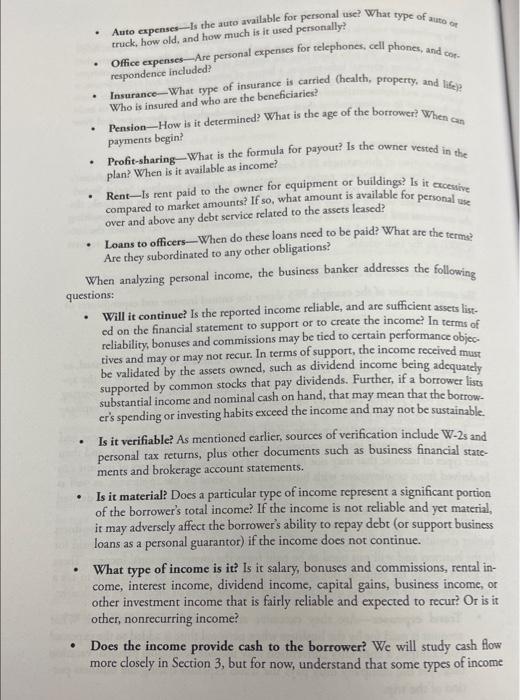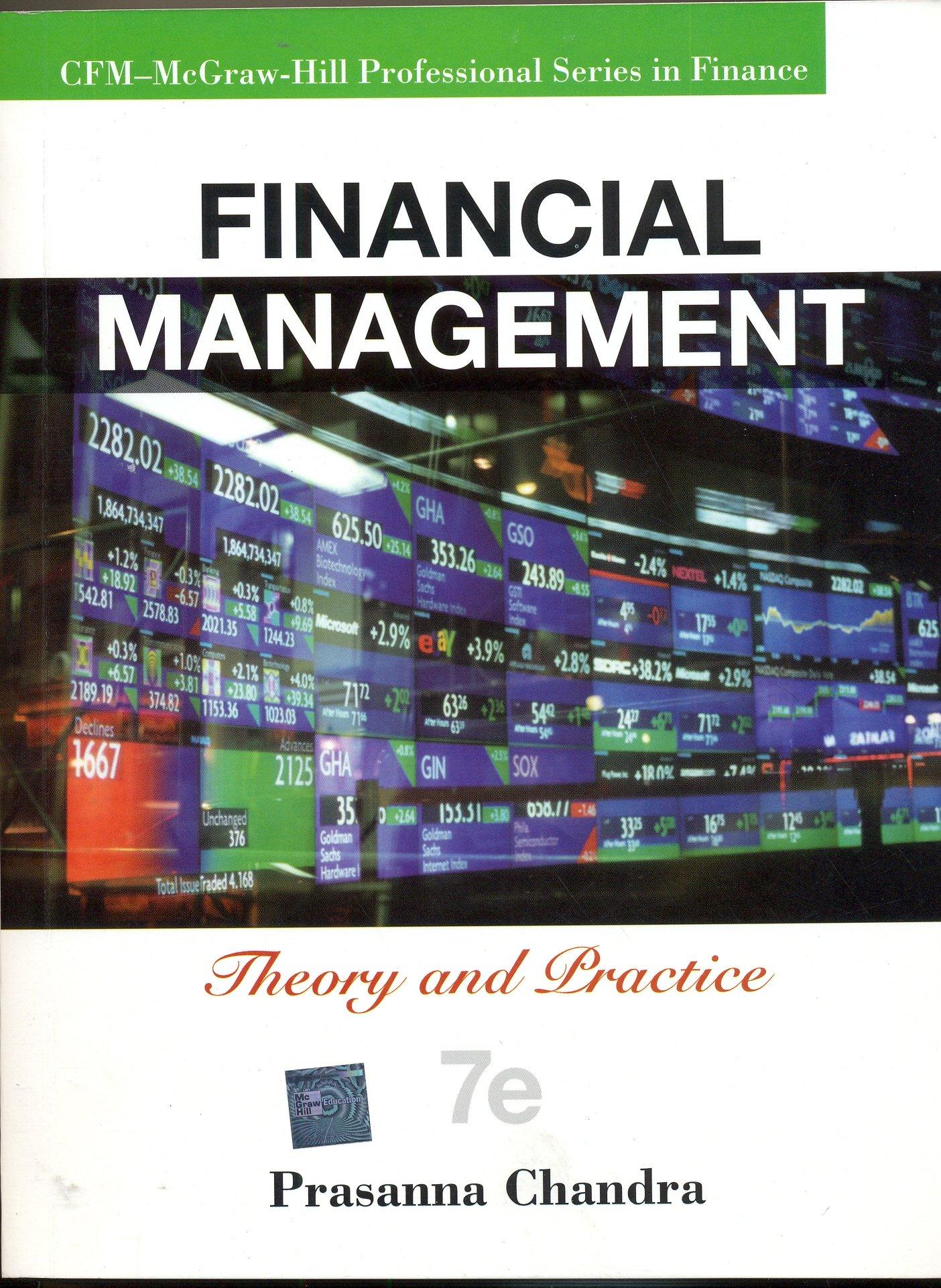
page328
The five specific questions to be asked when a banker is analyzing personal income (see page 328 in your textbook) cannot be applied analysts of busines income. Do you agree or disagree with the statement? Be sure to justity your position and as part of your response provide a list of the five ques regarding personal income, and why each can or cannot be applied to an anslysis of business income. - Auto expenses-is the auto available for personal use? What type of auto of truck, how old, and how much is it used personally? - Office expenses-Are personal expenses for telephones, cell phones, and conrespondence included? - Insurance-What rype of insurance is carried (health, property, and life)g Who is insured and who are the beneficiaries? - Pension-How is it determined? What is the age of the borrower? When can payments begin? - Profit-sharing What is the formula for payout? Is the owner vested in the plan? When is it available as income? - Rent-Is rent paid to the owner for equipment or buildings? Is it exoesine compared to market amounts? If so, what amount is available for personal use over and above any debt service related to the assets leased? - Loans to officers-When do these loans need to be paid? What ate the terms? Are they subordinated to any other obligations? When analyzing personal income, the business banker addresses the following questions: - Will it continue? Is the reported income reliable, and are sufficient assets listed on the financial statement to support or to create the income? In terms of reliability, bonuses and commissions may be tied to certain performance objectives and may or may not recur. In terms of support, the income received must be validated by the assets owned, such as dividend income being adequately supported by common stocks that pay dividends. Further, if a borrower lists substantial income and nominal cash on hand, that may mean that the borrower's spending or investing habits exceed the income and may not be sustainable. - Is it verifiable? As mentioned carlier, sources of verification include W-2s and personal tax returns, plus other documents such as business financial statements and brokerage account statements. - Is it material? Does a particular type of income represent a significant portion of the borrower's total income? If the income is not reliable and yet material, it may adversely affect the borrower's ability to repay debt (or support business loans as a personal guarantor) if the income does not continue. - What type of income is it? Is it salary, bonuses and commissions, rental income, interest income, dividend income, capital gains, business income, or other investment income that is fairly reliable and expected to recur? Or is it other, nonrecurring income? - Does the income provide cash to the borrower? We will study cash flow more closely in Section 3, but for now, understand that some types of income

 page328
page328





